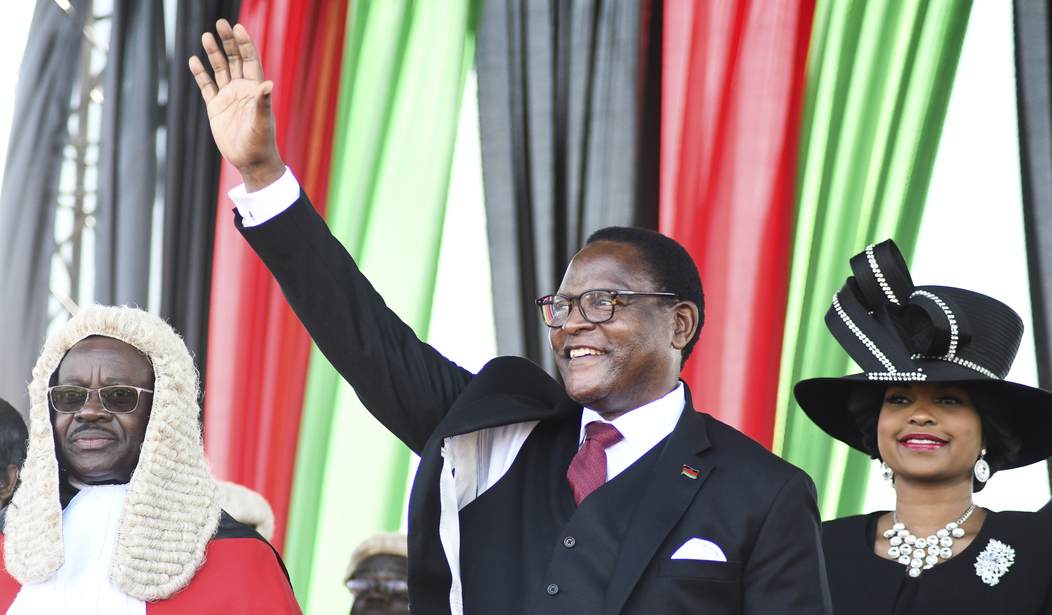In May 2019, Peter Mutharika, incumbent president in the southern African nation of Malawi, claimed a narrow re-election victory over opposition challenger Lazarus Chakwera.
Malawians, however, reported "voting irregularities." Investigators found altered vote tallies and evidence of tampering. A majority of the country concluded Chakwera had defeated Mutharika.
Incensed Malawians began nationwide nonviolent protests. Despite threats by Mutharika supporters, "stolen election" demonstrations persisted in rural towns as well as cities.
Since he retained the title of president, Mutharika believed he controlled the guns and the courts. The protests would fade.
He learned otherwise. Malawi's military, the Malawi Defense Force (MDF) and the Malawi Police Service, watched the country carefully, keeping order but not taking sides. The opposition appealed to Malawi's highest court, the Constitutional Court. MDF commanders made it clear their service, as protectors of the constitution, would protect the court's justices and respect the court's decision.
Ignoring intimidation and enticements (Mutharika offered splendid early retirement), in February 2020, the court annulled the 2019 results as tainted and ordered new elections in June 2020 -- the Fresh Presidential Election.
MDF soldiers prepared to secure the FPE's paper ballots. In a June briefing, an MDF general told motorists to "maintain a distance of at least one kilometer between them and vehicles" carrying ballots. Enter the security zone and get a warning, but "(overtly) following the vehicles can lead to loss of lives if one is not careful." Beware political thugs -- MDF weapons prevent ballot hijacking.
Recommended
Voters need protection, too. On June 22, MDF soldiers in central Malawi detained 16 men local citizens identified as intruders seeking to disrupt the vote. When police officers questioned the 16, they admitted they worked for Mutharika's governing Democratic Progressive Party.
On June 23, opposition leader Chakwera received 60% of the vote in the untainted do-over. Mutharika got 38%. An MDF contingent immediately began protecting Chakwera.
Voting irregularities occur in mature democracies. However, election fraud does severe harm to developing nations where the disenfranchised have little or no systemic recourse and free speech is risky. Hope and nascent civil participation give way to wrath and alienation, which produce violence and destruction, not stability and economic development.
In the six decades since decolonization, election rigging by sub-Saharan Africa elites has stunted economic and social progress in nations whose people deserve far better (see Ghana). Disregard of constitutional law and violent intimidation of opposition voters by the party in power inevitably accompany election theft. Burundi and Congo are examples.
Even in comparatively stable Kenya, vote fraud spurs conflict. Over 1,000 Kenyans died in violence following the 2007 election. Kenyans learned something. Kenya's Supreme Court quickly annulled the August 2017 flawed presidential election results and ordered a new election meeting "constitutional standards." The ruling party won the tidier redo.
Since power didn't change hands in Nairobi, the BBC called Malawi's 2020 FPE "the first time in sub-Saharan Africa that a flawed election result has been overturned, and the opposition has gone on to win power democratically."
Malawi did more than establish a new regional standard; it provided a globally instructive example of the strength of a liberal constitutional process that is respected by the citizenry.
Moreover, Malawians expect their judicial and security institutions to respect the constitutional process and enforce it. The MDF is small and professional. On several occasions, it has acted to protect constitutional authority (2012, for example).
Malawi is one of the world's poorest nations. Malawians joke about their economic difficulties. Unlike neighboring Mozambique, they say, our landlocked nation has no valuable ports. Unlike neighboring Zambia, we have no valuable mineral deposits. So the world leaves us in poverty -- and leaves us in peace.
They admit the joke isn't quite true, but it's not totally false.
Malawi demonstrates courageous, intelligent people can keep the peace and defeat would-be dictators.

























Join the conversation as a VIP Member